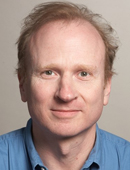
Research
We take a chemical-genetic approach to dissect the networks of CDKs and their targets involved in cell division and gene expression, both in yeast and mammalian cells. We created human cell lines and yeast strains that express only a mutant version of a particular CDK, which has been engineered to be analog-sensitive (AS)--susceptible to inhibition by bulky purine analogs that do not interfere with the functions of other, wild-type kinases. By modifying a single kinase in a cell, we can precisely determine its functions and targets. By combining mutations in more than one enzyme, we can determine the order of pathways that contain multiple CDKs, and uncover genetic interactions between separate CDK-containing pathways. In human colon cancer cells, we have targeted Cdk7, which has dual functions in cell cycle control and in transcription, to uncover its essential requirements at the entry to both S phase and mitosis, and to reveal its role in Pol II dynamics on actively transcribed genes in vivo. In the fission yeast Schizosaccharomyces pombe, we made AS versions of three different CDKs that phosphorylate the Pol II CTD with distinct but overlapping specificities; by inhibiting each CDK individually or in combinations, we defined an ordered, two-CDK pathway of phosphorylation that couples elongation with capping of the 5' end of a nascent transcript--a potential quality control mechanism reminiscent of the checkpoints that ensure the integrity and fidelity of genome transmission during mitotic cell division.
In our current work, we continue to expand our map of the CDK network, and to use chemical genetics--switching CDK activity ON and OFF in vivo with small molecules--to test predictions of network function generated by computational modeling. In this way, we hope to reveal new functions and targets of the network, and potentially promising targets for anticancer chemotherapy.
Visit the Fisher Laboratory
Education
MD, Stanford University
PhD, Stanford University
Publications
Selected Publications
Tumor suppression by RNA surveillance. Robert P. Fisher. Science
A cell cycle regulator branches out. Robert P. Fisher. Science
New connections between ubiquitylation and methylation in the co-transcriptional histone modification network. Daniel Pinto, Vivane Pagé, Robert P. Fisher, Jason C. Tanny. Current Genetics
View All Publications
Office Locations
Industry Relationships
Physicians and scientists on the faculty of the Icahn School of Medicine at Mount Sinai often interact with pharmaceutical, device, biotechnology companies, and other outside entities to improve patient care, develop new therapies and achieve scientific breakthroughs. In order to promote an ethical and transparent environment for conducting research, providing clinical care and teaching, Mount Sinai requires that salaried faculty inform the School of their outside financial relationships.
Below are financial relationships with industry reported by Dr. Fisher during 2023 and/or 2024. Please note that this information may differ from information posted on corporate sites due to timing or classification differences.
Consulting or Other Professional Services Examples include, but are not limited to, committee participation, data safety monitoring board (DSMB) membership
- Kirilys Therapeutics, Inc.
Mount Sinai's faculty policies relating to faculty collaboration with industry are posted on our website. Patients may wish to ask their physician about the activities they perform for companies.
Physicians and scientists on the faculty of the Icahn School of Medicine at Mount Sinai often interact with pharmaceutical, device, biotechnology companies, and other outside entities to improve patient care, develop new therapies and achieve scientific breakthroughs. In order to promote an ethical and transparent environment for conducting research, providing clinical care and teaching, Mount Sinai requires that salaried faculty inform the School of their outside financial relationships.
Below are financial relationships with industry reported by Dr. Fisher during 2023 and/or 2024. Please note that this information may differ from information posted on corporate sites due to timing or classification differences.
Consulting or Other Professional Services Examples include, but are not limited to, committee participation, data safety monitoring board (DSMB) membership
- Kirilys Therapeutics, Inc.
Mount Sinai's faculty policies relating to faculty collaboration with industry are posted on our website. Patients may wish to ask their physician about the activities they perform for companies.